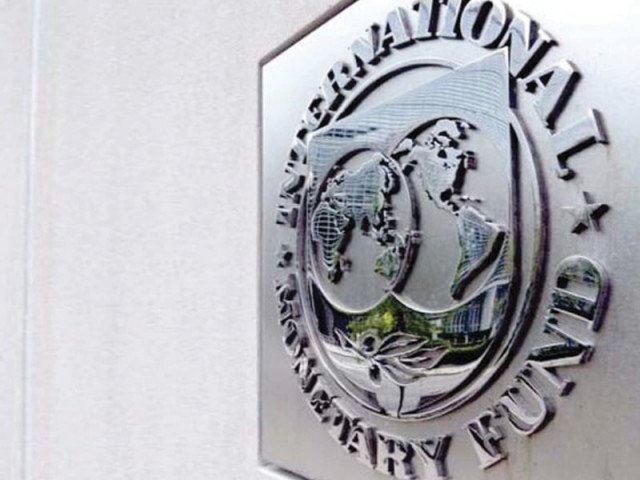Downward revision: Once again, IMF lowers tax target
Move prompted by FBR’s lacklustre performance; will force govt to slash development spending this year.

Move prompted by FBR’s lacklustre performance; will force govt to slash development spending this year. PHOTO: FILE
Prompted by the lacklustre performance of Pakistan’s taxman, the International Monetary Fund (IMF) has revised downwards its tax target for the country by around Rs75 billion – a move that will force the government to slash its development budget by the same amount.
Based on the results of the first ten months of the current financial year (July 2013 to April 2014), the IMF has concluded that without additional revenue measures, the Federal Board of Revenue (FBR) will not be in a position to achieve the downward revised target of Rs2.345 trillion, sources said.
Following the second revision, the new tax collection target stands at around Rs2.27 trillion, almost Rs200 billion less than the original target set by the IMF.
The decision was taken during the third review of the $6.7 billion loan programme which was completed in Dubai on Friday.
IMF mission chief to Pakistan, Jeffery Franks, and Finance Minister Ishaq Dar will address a joint press conference today (Saturday)to share the outcomes of the talks in Dubai. IMF staff will also present a report to the lender’s executive board and seek approval for the loan’s fourth tranche of over $550 million.

IMF’s decision to revise its tax target means the government will now close the financial year by spending around Rs350 billion against Parliament’s approved development budget of Rs540 billion, sources in the finance ministry said. The adjustment is needed to avoid any negative impact of failing to meet the tax target on the overall budget deficit target of 5.8% of the gross domestic product (GDP).
It will be the second time the government has had to slash development spending this financial year due to the failure of the Federal Board of Revenue (FBR) to deliver on the Rs2.475 trillion tax target. The development budget was slashed earlier by around Rs115 billion to Rs425 billion after the IMF revised its tax collection target downwards for the first time, setting it at Rs2.345 trillion.
When IMF revised the tax target the first time, the finance minister pinned responsibility on the previous government. He claimed the the Rs2.475 trillion target was set based on tax collection by the end of the previous financial year, which remained at Rs1.946 trillion against the target of Rs2.05 trillion.
This time, however, Dar will have to look for a new scapegoat.
According to sources, FBR’s unwillingness to reform itself has become a cause of embarrassment for the government. FBR Chairman Tariq Bajwa refused to comment on the downward revised target when contacted.
Sources said IMF has also lowered its expectations about tax collection in the next financial year. Against the proposed Rs2.9 trillion target, the international lender has agreed to fix the target at Rs2.8 trillion, they told The Express Tribune.
Some Rs2.8 trillion is still Rs100 billion more than what FBR told the IMF was an achievable target, sources said. Next year’s target is also Rs530 billion or 23.4% higher than this year’s twice downward revised target.
Around Rs230 billion out of the Rs530 billion will be raised levying new taxes and withdrawing tax exemptions, they said. Because of 12% nominal economic growth in the next fiscal year, FBR’s collection will be augmented by Rs270 billion without levying any new tax, sources added.
Meanwhile, during talks in Dubai, Pakistan informed IMF that the salaries of government employees would be increased to make them equal to the inflation rate. A final decision on this will be taken by the federal cabinet.
Published in The Express Tribune, May 10th, 2014.





1724319076-0/Untitled-design-(5)1724319076-0-208x130.webp)













COMMENTS
Comments are moderated and generally will be posted if they are on-topic and not abusive.
For more information, please see our Comments FAQ